The Midwest Labor and Working-Class History (MLWCH) colloquium met at the University of Memphis on June 2nd, 2017. The one-day event included academic papers and roundtables that addressed larger labor and working-class issues. This year’s theme, “Labor Mobilizations and Movements: From the Local to the Global,” attracted an impressive swath of academic scholars, public historians, and activists who addressed a range of historical and contemporary topics.

Dr. Shadrack Nasong’o of Rhodes College moderated the first panel, which addressed labor in West Africa. Elizabeth Fretwell’s work on artisan labor spoke to the broader failure of the colonial state and the evolution of self-employed artisans. Keith Bratton, a freelance photographer and adjunct history professor at Christian Brothers University, provided an in-depth look at subsistence and cash crop labor in Ghana. His work, based on ten years of field experience, highlighted gendered divisions of labor, the interconnected nature of markets within Ghana, and the influence of globalization. As Dr. Nasong’o reminded us, both papers raised questions about development from above as problematic in West Africa.

The morning roundtable, “On the Front Lines,” provided a rousing conversation moderated by Anthony Siracusa of Vanderbilt University. Public historians on the panel explored important work happening in Memphis. Dr. Noelle Trent, Director of Interpretation, Collections, and Education at the National Civil Rights Museum, spoke of institution building and the role of the museum in providing a discussion platform for both historical and contemporary events. Rebecca Price, founder and CEO of Chick History, detailed the mission of her non-profit, particularly its interest in preserving women’s legacies by making sure that they are present in the archives. She spoke of her current project in conjunction with “March to the 19th,” which recovers the history of African-American women in the suffrage movement.
Activists added insight to the roundtable by detailing struggles and gains on the ground. Jayanni Webster, community organizer for the local Fight for $15 campaign and union organizer for United Campus Workers, spoke of the unique challenges of labor organizing in a southern right-to-work state. As Webster explained, success in Memphis organizing often depends on social movement unionism. Memphis Advocates for Radical Childcare (M.A.R.C.H.) cofounder Phuong Nguyen spoke of her work with local activists. She provided insight on challenges for working-class activists in Memphis who seek to participate in local movements but cannot afford childcare. Nguyen aptly claimed that “childcare is a radical act of solidarity.” She went on to show the importance of M.A.R.C.H in “recognizing childcare work as real valuable labor” in larger social justice movements.

The two afternoon panels explored ideas of resistance and gendered spaces in working-class history. The first, moderated by Dr. Michele Coffey, featured Fraser Livingston’s environmental history of convict-leasing and Andrea Ringer’s research on worker resistance in the circus. As Dr. Coffey remarked, both papers challenged histories that have ignored particular workers.
The second panel featured commentary from Dr. Katie Fredlund and explored ideas of femininity, activism, and sexual identity. Dr. John Knight’s look at activists in China’s Proletarian Women’s Movement showed activists challenging tropes and taking on overlapping identities. Rebekkah Mulholland’s study of activist Ernestine Eppenger demonstrated the multifaceted activism of black revolutionaries.
The colloquium concluded with the plenary roundtable, “Laboring in the Classroom.” Drs. Susan O’Donovan, John McKerley, Gordon Andrews, and David Anderson addressed the intersection of teaching and activism and spoke of how teaching labor history has changed. McKerley provided insight into his work at the Iowa Labor History Oral Project (ILHOP), where he conducts interviews with local workers and teaches history. Andrews provided concrete ways to infuse labor history into survey courses and improve historical thinking among students. His book, Collaboration and the Future of Education: Preserving the Right to Think and Teach Historically, contains additional insight into teaching as a form of labor. Anderson offered advice on how to teach labor history in the age of Trump. This sort of present usefulness, Anderson advised, means that labor history provides a useful past to draw upon. The panel agreed that there is a current value in teaching the moments where ideology has been stacked against workers.

This year’s event was generously hosted by the University of Memphis Department of History and cosponsored by the Marcus W. Orr Center for the Humanities and the Benjamin L. Hooks Institute for Social Change at the University of Memphis.
Ashley Dorn and John Jepson, graduate students at the University of Iowa, have agreed to organize MLWCH 2018. A formal Call for Papers and more information will be available in the coming months.

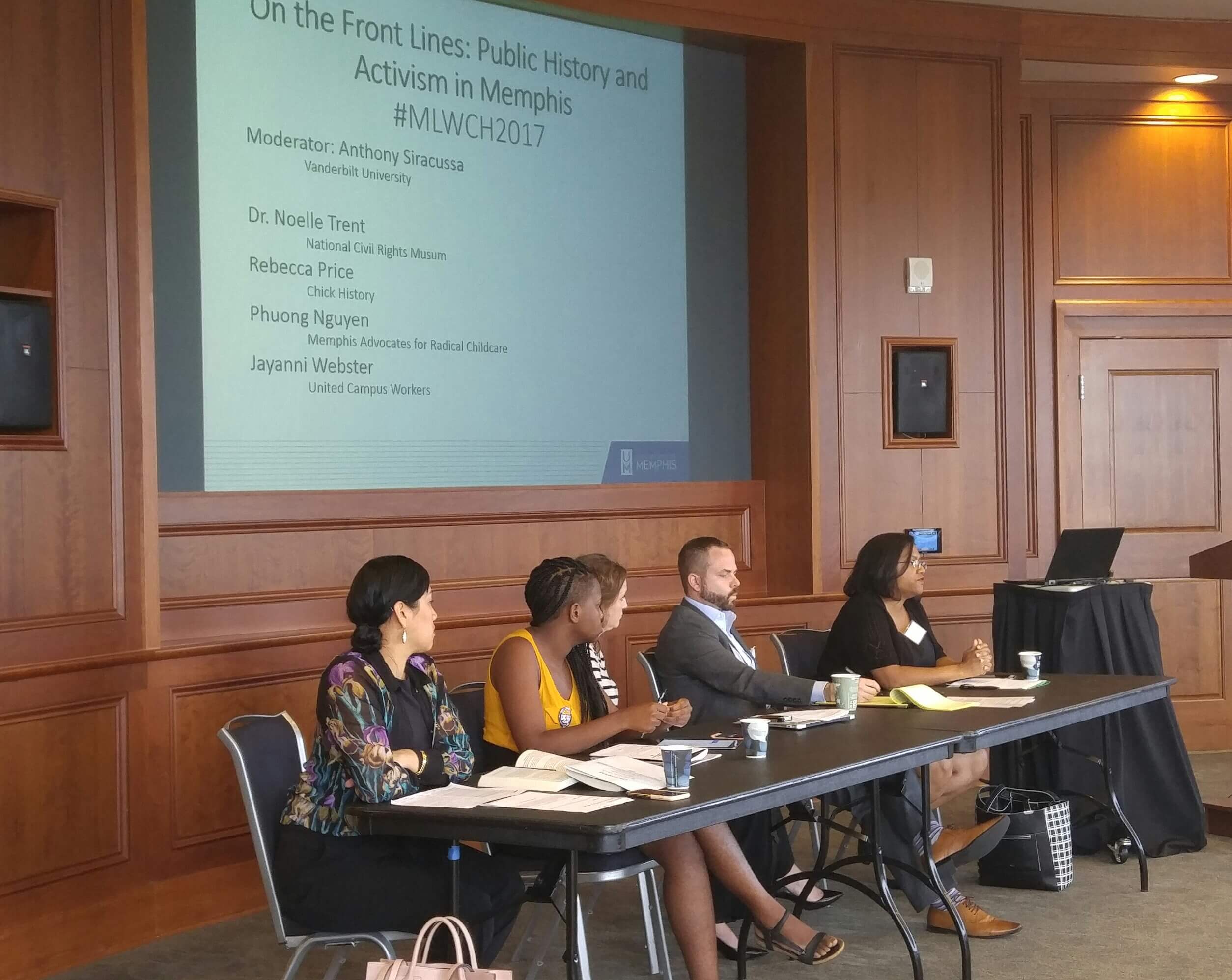

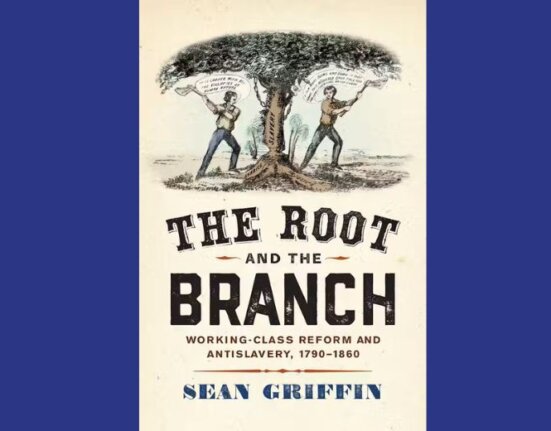
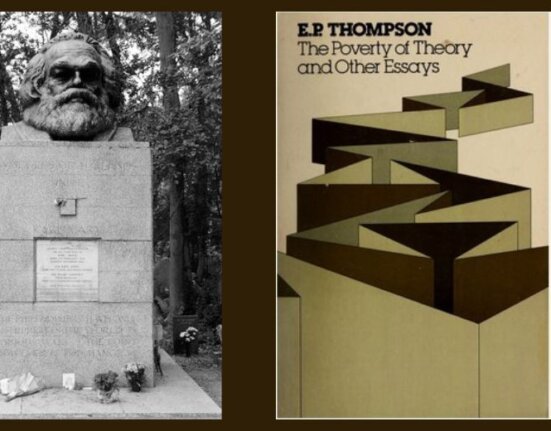
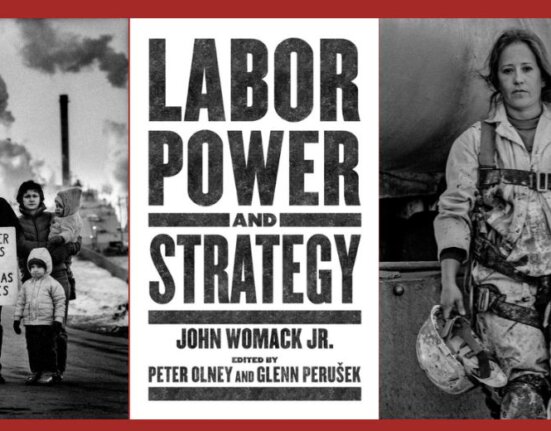
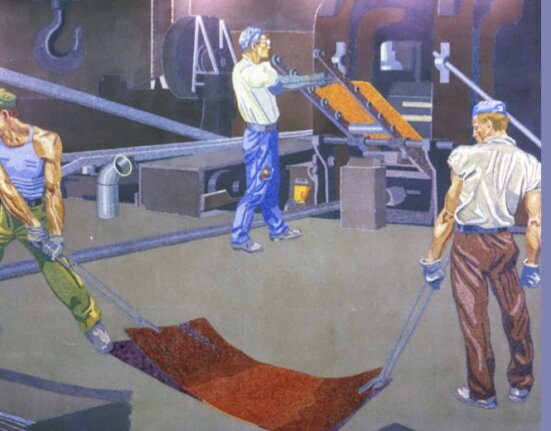
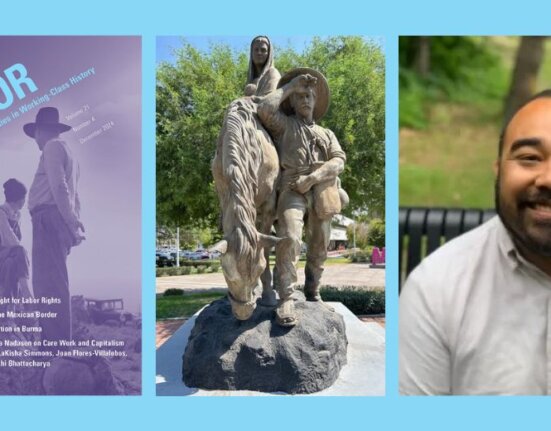
1 Comment
Comments are closed.